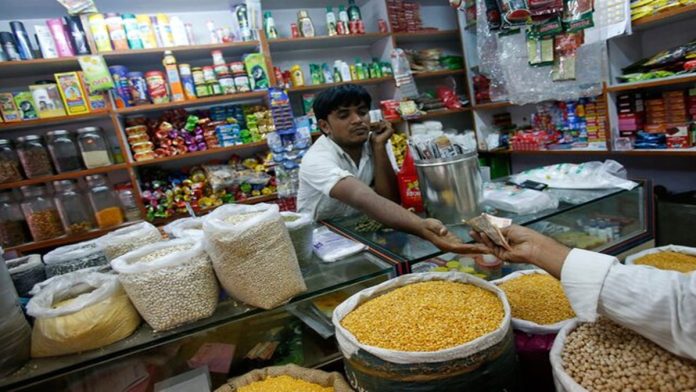The rapid expansion of quick commerce in India has led to the closure of around 200,000 kirana stores in the country in the past one year, India’s biggest retail distributors association the All India Consumer Products Distributors Federation (AICPDF) said on Monday.
In a statement, the federation added that the sales of kirana stores this festive season have remained stagnant. Currently, India is estimated to have around 13 million of these stores, with over 10 million of them in tier-2 and smaller cities.
According to Dhairyashil Patil, National President of AICPDF, quick commerce is eroding kirana stores’ customer base and profitability.
Also Read Bajaj Finance shares up 6% on stable Q2; stock 10% away from all-time high Paytm shares to remain in focus after NPCI nod to add new UPI users Wipro shares zoom over 5% after Q2 betters estimates; is it the right time to buy? Avenue Supermarts shares plunge over 9% on concerns about competition from online grocery platforms
“Deep discounting, combined with predatory pricing, has created an unfair playing field, eroding the customer base and profitability of kirana stores that have anchored our retail landscape for generations,” he said.
Also ReadBharti Airtel appoints Shashwat Sharma as MD, CEO
“These aggressive practices, coupled with the economic slowdown, are forcing many traditional retailers to shut their doors.”
In recent days, many consumer goods companies have said that the demand for their products on quick commerce platforms has increased due to shifting customer preferences. FE on Monday reported that several direct-to-customer brands are witnessing up to 250% higher festive sales on these platforms as compared to last year.
The industry body highlighted that customer visits to kirana stores have fallen by almost half this year’s as compared to the last two-three years. It added that quick commerce is putting pressure on margins “as they struggle to match discounts offered by online and quick commerce platforms”.
“These aggressive practices, which prioritise short-term customer gains over sustainable business practices, are directly responsible for the closure of nearly 200,000 Kirana stores across the country,” said PM Ganeshraam, chief patron at AICPDF.
The data shared by the federation showed that the highest impact of quick commerce has been witnessed in metro cities. Out of the total,
» Read More


